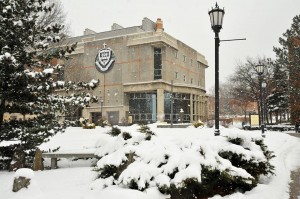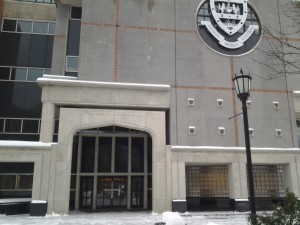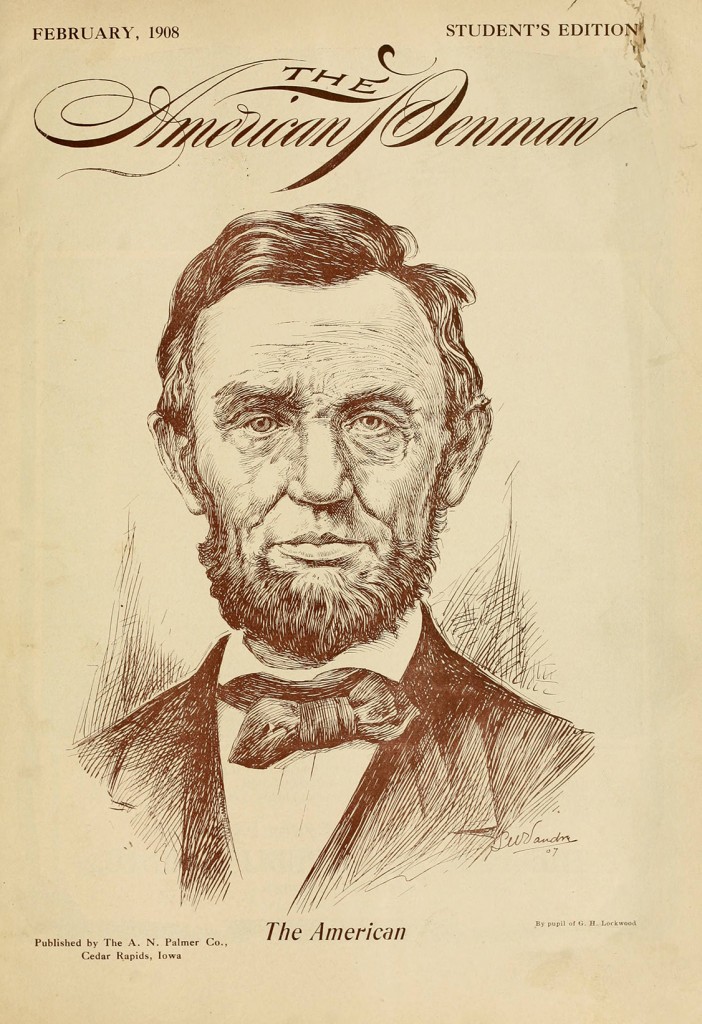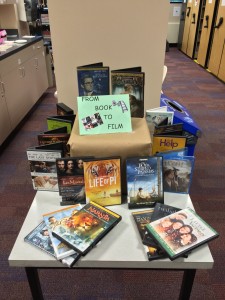On behalf of the Circulation Services staff, we would like to recognize our student worker Laura Urbanovich, a 2013 U of S Cum Laude Graduate who is now in the process of earning her Masters in Occupational Therapy. Laura comes from Nutley, New Jersey and she began her studies in the Fall of 2009. Majoring in Health Sciences with a Minor in Psychology, she has been employed with us since Spring 2010. At the Circulation Desk her popularity is evident as you can hear the exchange of greetings from many passersby whenever she is working there. Always smiling, she has the perfect personality for and really enjoys the customer service aspects of her job. She recognizes the library’s many great resources and encourages other students to ask for help when they need it.
Laura is a member of the Student Occupational Therapy Association and has participated in Divinely Designed Retreat and Intramural Sports. She enjoys skiing, music and reading. Her favorite book is The Great Gatsby and her favorite movie is Mean Girls. Two of her favorite professors are Dr. Charles Pinches of the Theology Department and Dr. Marlene Morgan of the Occupational Therapy Department. One fun fact about Laura is that she loves to travel! She’s been to Jamaica with ISP, Ireland, Dubai and took a travel course in Uganda. When she’s not studying or working on campus, she works at a local day care center.
When her studies here are completed, she hopes to continue traveling and find a job that she loves!
Thank you Laura!
The Library is Closing at 4PM!
Due to the heavy snow that is forecast to continue throughout the day, the library will be closing at 4PM today.
The Reilly Learning Commons and Pro Deo rooms will continue to be open to all students with a current Royal Card. Please swipe your Royal Card to gain entrance into either room.
The library will continue to support virtual reference services throughout the night (24 hours). Simply click the Ask A Librarian chat box on any of the library’s main pages or the image below.
The Library Is Open!

Portrait of Abraham Lincoln
Portrait of Abraham Lincoln by a pupil of penman G. H. Lockwood, as published in the February 1908 issue of The American Penman. (from our Zaner-Bloser Penmanship Collection)

The Day We Fight Back
Today, as part of The Day We Fight Back, a national demonstration against mass surveillance, the American Library Association is urging library supporters to ask their representatives in Congress to support the USA FREEDOM Act (S.1599 and H.R.3361).
ALA’s Washington Office explains why:
ALA is making this effort because of the library community’s long standing commitment to privacy, starting with the protection of patron library records. Grassroots support from ALA has meant a lot to the reform attempts since passage of the USA PATRIOT Act in 2001. Now with public knowledge about the extensive surveillance of telephone records and other revelations, there is an opportunity get some real reforms to the surveillance system. That is why we need our library voices to express the need for ending mass surveillance, bring due process to the FISA court process and rationality to the collection and retention of data about millions of people.
The FREEDOM Act, introduced by Senator Pat Leahy (D-Vermont) and Representative Jim Sensenbrenner (R-Wisconsin), seeks to end bulk collection of Americans’ communications information and introduce transparency and oversight for National Security Agency investigations. As ALA explains:
This bicameral piece of legislation is intended to end bulk collection of telephone metadata, prevent bulk collection of Internet metadata, and permit companies to report publicly on the number of FISA orders and National Security Letters they have received and complied with, and the number of users (or accounts) whose information was sought under those orders and letters.
The bill would also require the government itself to make additional disclosures about the intelligence surveillance it conducts. It would also establish a process for declassifying significant opinions issued by the FISA court and create an Office of the Special Advocate charged with arguing for privacy at the FISA Court.
Please ask both your U.S. representative and senators to co-sponsor this important legislation. If your any of your legislators have already co-sponsored, please thank them for bringing more transparency and oversight to these spying programs.
The International Film Series Presents: Foreign Letters
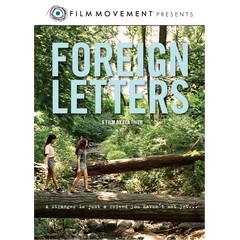
Please join us at 7:00 p.m. on Friday February 21, 2014 in Room 305 of the Weinberg Memorial Library for a free presentation of the American coming-of-age film Foreign Letters. A brief discussion will follow the film.
Set in the 1980’s, Film Movement describes Foreign Letters as the story of Ellie, a 12-year-old immigrant from Israel who is lonely and homesick. Life brightens when she meets Thuy, a Vietnamese refugee her age. Trust slowly builds as the two teach each other about life in America. As Ellie and Thuy become inseparable, they eventually hurt and betray each other. Ellie must give up her most prized possession, in order to save their friendship. Based on filmmaker Ela Their’s experiences, Foreign Letters is a story about prejudice, poverty, shame, and the power of friendship to heal us.
Foreign Letters is in English, Hebrew and Vietnamese with English subtitles.
This event is open to faculty, staff, students and the public. Please email Sharon.finnerty@scranton.edu for reservations.

The Mutiny on the Bounty: A 225-Year Voyage from Fiction to Fact
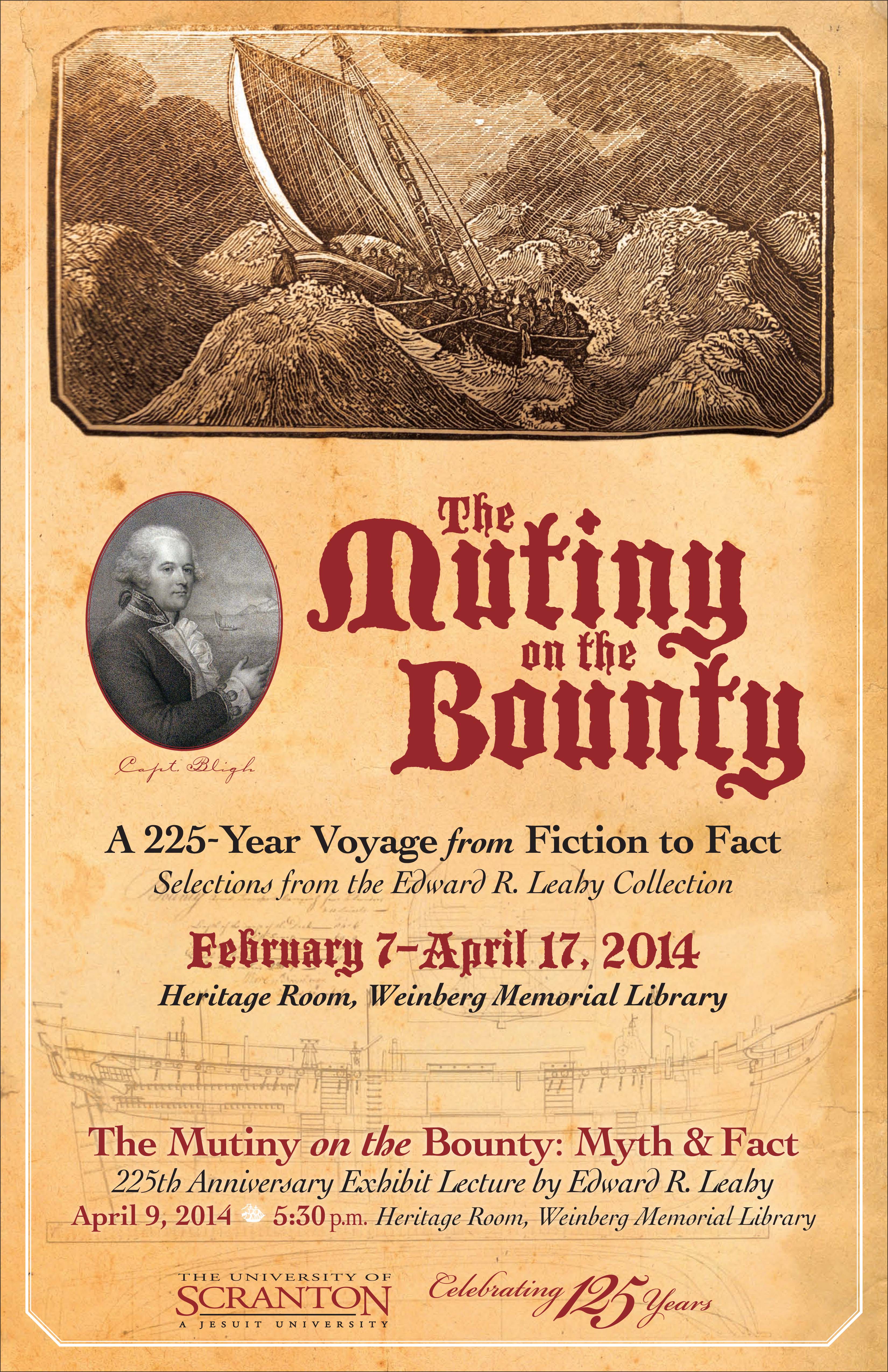 Although the mutiny on the Bounty will always stand as a signal event in maritime history, the circumstances surrounding the mutiny have been clouded by early attacks on Lieutenant William Bligh and by motion pictures, which portrayed him as a tyrant. Doubtless, Bligh had a sharp tongue which he used quite effectively to berate his petty officers. But contrary to the portrait created by partisans of the mutineers, Bligh was an enlightened commander who limited the use of disciplinary flogging.
Although the mutiny on the Bounty will always stand as a signal event in maritime history, the circumstances surrounding the mutiny have been clouded by early attacks on Lieutenant William Bligh and by motion pictures, which portrayed him as a tyrant. Doubtless, Bligh had a sharp tongue which he used quite effectively to berate his petty officers. But contrary to the portrait created by partisans of the mutineers, Bligh was an enlightened commander who limited the use of disciplinary flogging.
The mutiny is only part of the story. After the Bounty was taken by Fletcher Christian and his fellow mutineers, Bligh and 18 loyalists squeezed into a launch for a harrowing 47 day open boat voyage in bad weather. Bligh and most of his men survived one of the greatest feats of navigation in history and returned home. But Bligh, eventually a Rear-Admiral, was always dogged by the mutiny and by the concerted smear campaign waged by a couple pardoned mutineers and the family of Christian.
In celebration of the 225th anniversary of the mutiny, Weinberg Library is presenting an exhibit on the topic drawn from the collection of University benefactor and alumnus Edward R. Leahy. Mr. Leahy has acquired rare and fascinating books showing both the historical facts and the efforts to sully Bligh. From Bligh’s Narrative to the mutineer’s court martial transcripts to the spurious Fletcher Christian letters and the authentic and extremely rare Peter Heywood letters, Mr. Leahy has assembled the historical evidence. But he has also collected the start of the Mutiny saga in the arts with works like Lord Byron’s The Island. This exhibit provides both the fiction and the facts of the mutiny on the Bounty.
The Heritage Room exhibit will open February 7 and close April 17, 2014. On April 9 at 5:30 PM Edward Leahy will speak on The Mutiny on the Bounty: Myth and Fact in the Heritage Room with a reception to follow. The talk is free and open to the public.
Contact Special Collections Librarian Michael Knies Michael.Knies@Scranton.edu 570-941-6341 for more information.
Technology on Your Own Terms – Spring 2014 Workshops
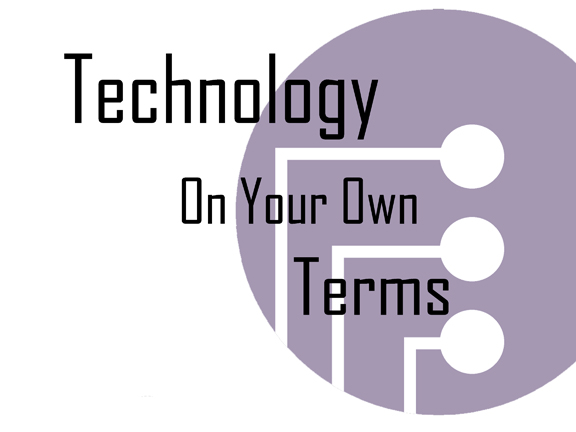
On behalf of the Weinberg Memorial Library and the Center for Teaching and Learning Excellence, we invite University of Scranton faculty and staff to our Spring 2014 Technology On Your Own Terms (TOYOT) workshops. Here’s what we’ve got planned for this semester:
Wednesday, March 19, 2014 – In conjunction with Wellness Day, this TOYOT workshop will feature fitness apps and gadgets that helps you get healthy and stay active.
Wednesday, April 9, 2014 – This workshop will give you some tips about how to cut your cable bill without doing a MacGyver! It will be held from 12:00 to 1:00pm in WML 305 and will be presented by Joe Casabona.
Registration information will be coming soon!
Feb. 10th – Bill Strickland: The Art of Leadership
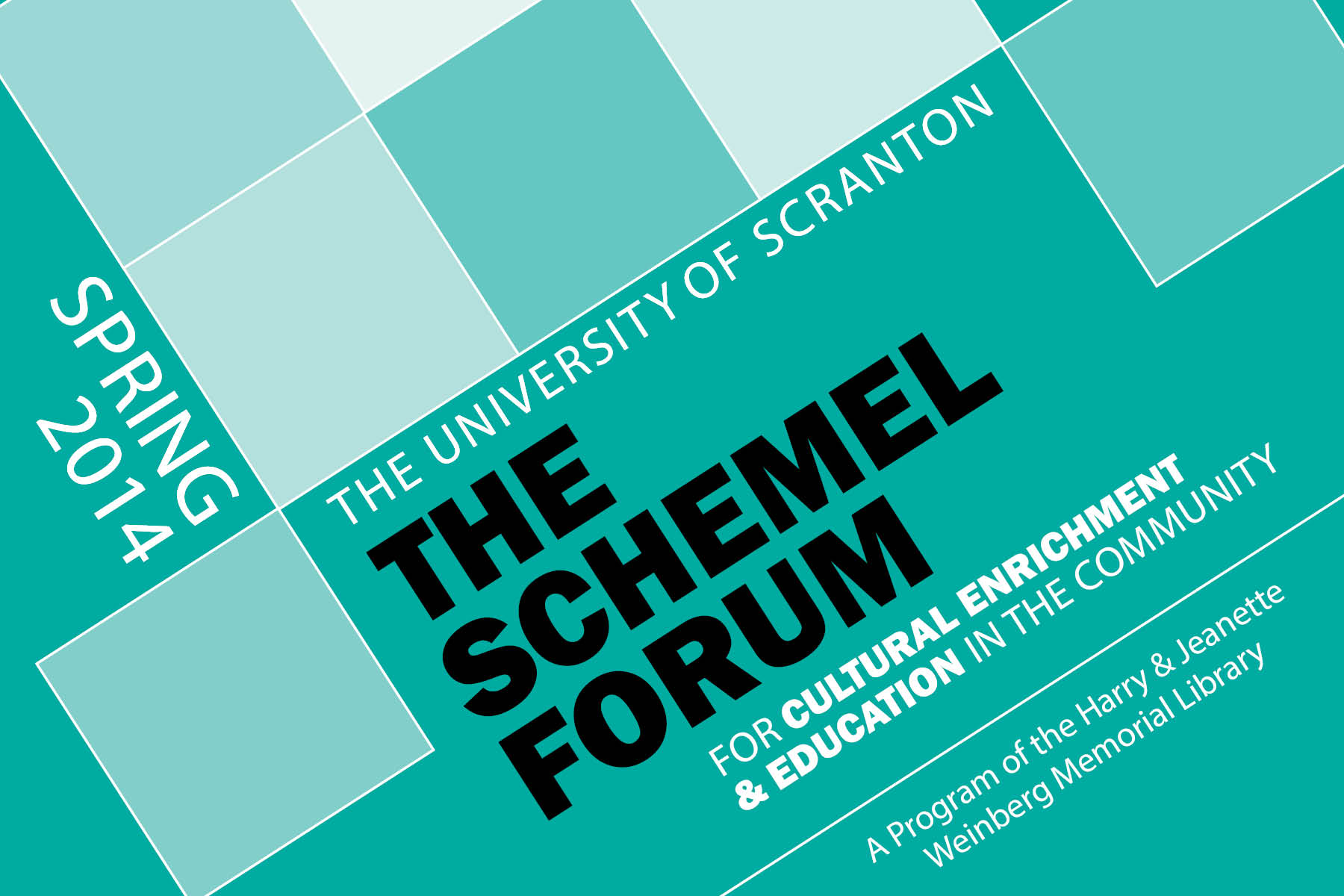 Feb. 10th marks the start of Schemel Forum World Affairs Luncheons for the spring semester!
Feb. 10th marks the start of Schemel Forum World Affairs Luncheons for the spring semester!
Bill Strickland, President and CEO of Manchester Bidwell Corp., Social Architect and Community Leader has used his leadership skills to improve the lives of disadvantaged young people through programs of his own design.
Winner of the coveted MacArthur “genius” Award, Bill will speak on “The Art of Leadership” focusing on what skill sets and leadership style can speak to the very complex and increasingly global nature of our challenges.
RSVP Here or email emily.brees@scranton.edu
From Book to Film
Looking for a good book? Why not see the movie instead? Media Resources houses dozens of films based on bestselling books. From classic stories like Little Women and To Kill a Mockingbird to young adult favorites like The Perks of Being a Wallflower and The Hunger Games, there is something for everyone.

